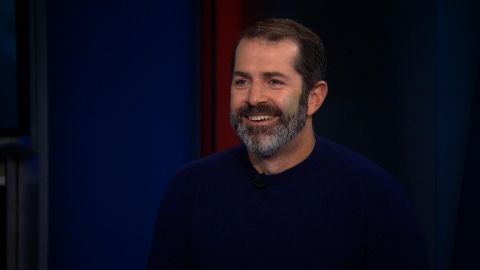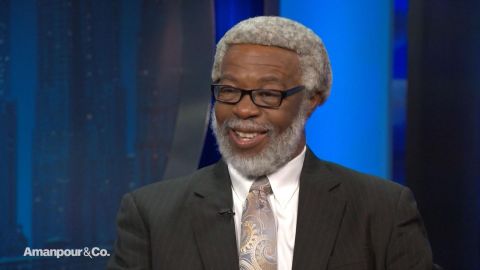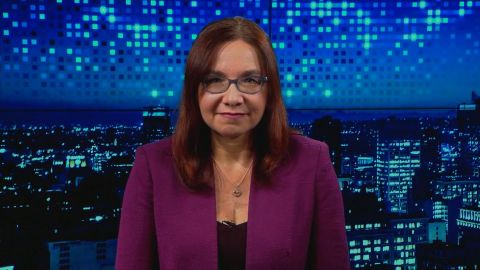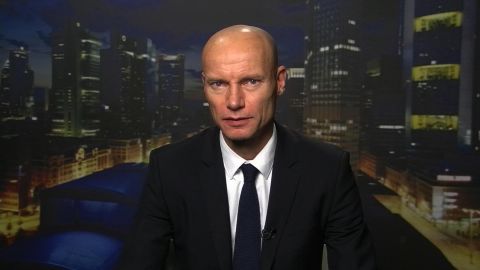Read Transcript EXPAND
CHRISTIANE AMANPOUR: The price point appears to be somewhere around $95.
ZWILLINGER: Yes.
AMANPOUR: And it’s not massively expensive. It’s not very cheap. It’s not a throwaway price, but it’s not what many sort of specialty shoes cost. They could cost much more.
ZWILLINGER: Yes.
AMANPOUR: But it works, right? I mean, your company, in a few years, is now a $1.4 billion company. It’s working.
ZWILLINGER: Yes. I mean, that’s — I think that’s — it’s important to think about, you know, in a world where a lot of people who think capitalism is under attack. Our belief is that consumers just demand more from business, they don’t mind paying business. They just want business not just to solely focus on enriching shareholders. They want people — they want business and business leaders to care about the environment, to care about their employees, to care about their supply chain. And then we sell directly to consumer and we skip the wholesale channel which allows us to slow things down. So, slow fashion, not fast fashion. And we go through albers.com or international sites, as well, and physical brick and mortar stores and we slow it down to give a great experience to consumers. We don’t discount our prices. We always sell full price. And that allows us to just not make bad short-term decisions. And I think that’s a model that I would hope a lot of other companies embrace.
AMANPOUR: We know that Stella McCartney and a few others, but her, particularly, is at the forefront of sustainable fashion and she’s been very, very vocal. But we also know, as you said, that the fashion industry is very reluctant and slow to move, to change. And I spoke to Anna Wintour, obviously, the editor-in-chief of “Vogue” and the creative director of “Conde Nast” about this and about how the general community is thinking. This is what she told me about it.
(BEGIN VIDEO CLIP)
ANNA WINTOUR, EDITOR-IN-CHIEF, U.S. VOGUE: Everybody is making a five-year plan. Everybody is concerned about the climate crisis and what should be done to help. And obviously, we’re very aware as other industries are that we have been at fault and what can we do in the relatively short amount of time we have to course correct.
AMANPOUR: So, it’s an urgency for you?
WINTOUR: It’s an urgency for everybody within the industry. I feel confident in saying that.
(END VIDEO CLIP)
AMANPOUR: Have you found that to be the case? I mean, obviously, it is something that is really getting out into the atmosphere now, to coin a phrase.
ZWILLINGER: Yes.
AMANPOUR: … that people and consumers are concerned about what they wear and what they push back into landfill and into the environment.
ZWILLINGER: Yes. You know, I do think there’s an urgency, because companies realize consumers want it. And whenever consumers make that clear, businesses respond. I would say, though, that the response has been unsatisfying and unsatisfactory. We think that the time for commitments is a bit over. Like, we’re in the crisis at the moment. And we think that action needs to be taken now. And the way to do that, it’s — there’s a recipe. It’s not that hard. So you have got to measure what your impact is, and reduce it, just like you would reduce cost as if it’s a line item in a normal business. And then, in the meantime, you should pay for your pollution.
About This Episode EXPAND
Henk Ovink joins Christiane Amanpour to discuss historic flooding in Venice, Katharine Hayhoe explains why we need an energy revolution and AllBirds co-CEO Joey Zwillinger discusses the importance of eco-friendly business practices. Plus, Professor S. James Gates tells Walter Isaacson about his new book that examines how scientists proved Einstein’s theory of relativity.
LEARN MORE



